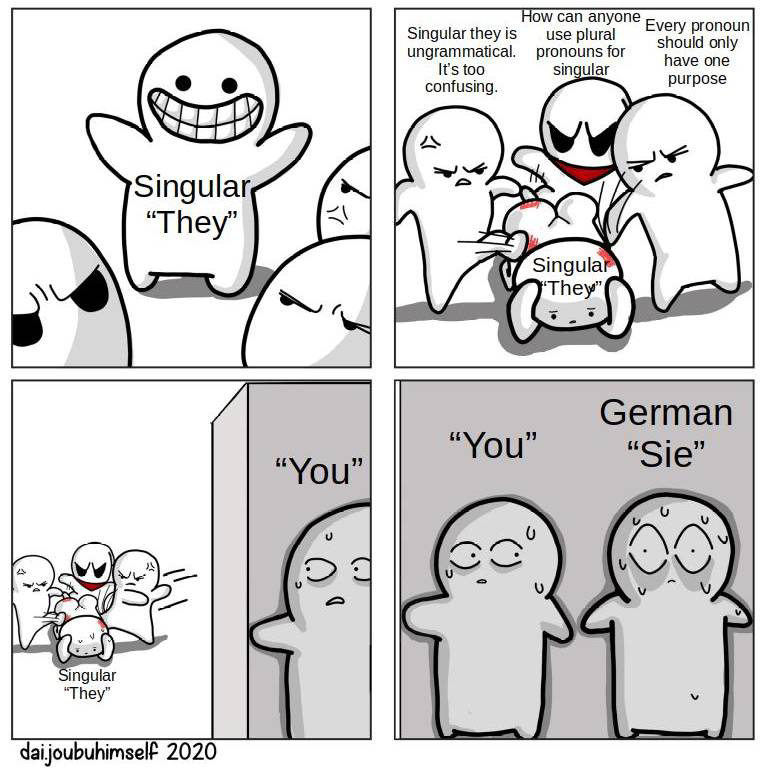this post was submitted on 24 Jul 2023
665 points (100.0% liked)
196
16244 readers
1969 users here now
Be sure to follow the rule before you head out.
Rule: You must post before you leave.
founded 1 year ago
MODERATORS
you are viewing a single comment's thread
view the rest of the comments
view the rest of the comments

Your Kelly example is similarly confusing. The "engineer" example is also confusing, but because English already conflates those two meanings, I at least know that I'm parsing a confusable sentence and can pick up on context clues.
If I were writing that, I'd say "Yeah well, that engineer don’t know what the fuck they’re talking about." The "they're" is then not confusing at all.
In this example, the engineer is the antecedent, the thing that is being referred to previously by the pronoun they. The only difference between the above example and this example
is that the antecedent is in a previous sentence said by a different person. This is a common use case for pronouns in general during a conversation and also a common use case for the singular they. My point is this is not confusion related to the most recent change to the singular they, that restrictions to name and description have been lifted. That's fine, but I think a lot of what people are saying about Shakespeare is relevant to this particular form of confusion, singular they vs plural they, because we have been using the singular they for quite some time.